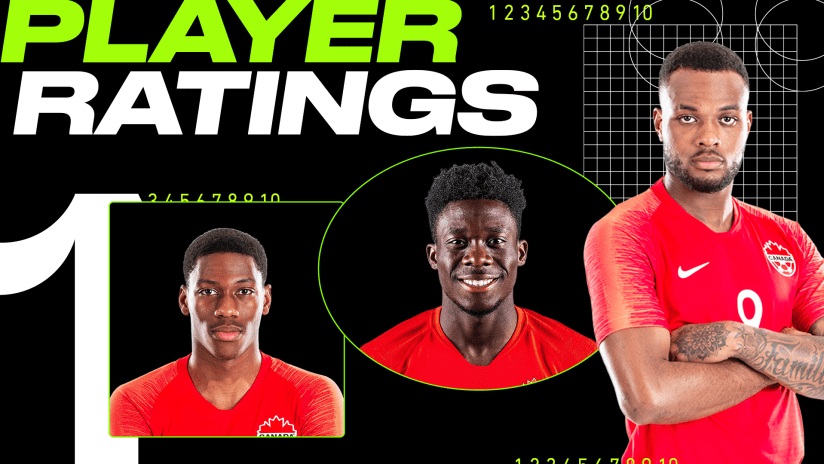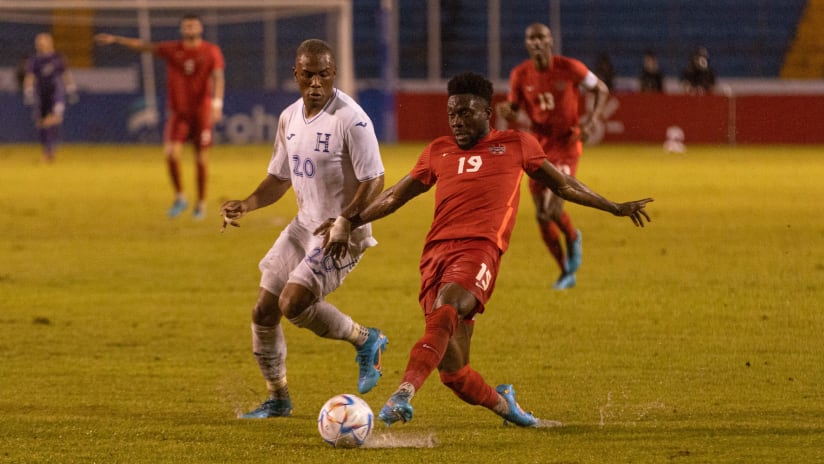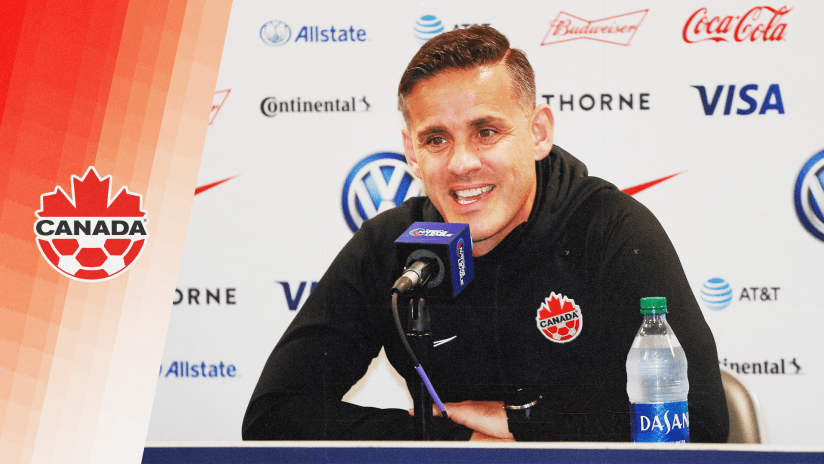The Canadian men’s national team's hectic June window came to an end on Monday as they lost 2-1 to Honduras in Concacaf Nations League action in San Pedro Sula.
This follows a resounding 4-0 win over Curacao on Thursday to open their Nations League campaign.
Here are three things we learned about Canada during this window.
Even though Canada didn’t have as many games as other World Cup-bound teams, there was a clear insistence on preparing for Qatar.
Thursday’s match saw Canada utilize the flanks via quick, direct passes and early crosses on the counter whenever the opportunities presented themselves. Monday’s game was an entirely different challenge, though.
Heavy rain caused the pitch in San Pedro Sula to become waterlogged. Big puddles formed, players were slipping everywhere and the ball held up at random moments on the dribble, making it difficult to play on the ground.
“It was like trying to put a Formula 1 car on an off-roading track," said Canada coach John Herdman. “That's what it felt like every time we looked to play in certain areas that we could get our best players moving, we'd either hold up or slide off the pitch.
“I just couldn’t believe that you’re going onto the pitch with $80-million players and they are playing in puddles.”
One team adjusted to the conditions, played more direct and justifiably won the game. That's necessary if teams want to succeed on the road in Concacaf. Canada might've had other priorities on the night but this served as a stark reminder that taking these trips for granted can cost any visitor.
Yet Canada didn’t shift from that focus, even after going 1-0 down in the 13th minute. Logic dictated that playing direct in those conditions would be the ideal strategy, but the Canadians were clearly more focused on the World Cup process rather than a singular result.
There were still opportunities to score, too. Ike Ugbo – in his international first start, no less – came close to equalizing in the 27th minute off a fantastic Junior Hoilett assist. Ugbo did struggle to get the ball out from underneath his feet, which led to a tame shot past the near post – a likely symptom of the heavy pitch.
One can understand prioritizing the World Cup, where they will take on Belgium, Croatia and Morrocco in Group F, but one bad half can make or break a tournament. Adjusting to the circumstances is crucial, no matter the opponent or game situation. Yes, it’s unlikely that Canada will play on a pitch as poor as this one in Qatar, but opponents may not give the Reds opportunities to counter, forcing them to go back to the drawing board.
"Tactically, could we have been more direct when we got here seeing the conditions? Could we have changed the lineup? I don't know," said Herdman. "You're always trying to look at things you would've done differently. But I thought the boys just kept plugging away. It was nice to see the goal go in and I just felt like whoever scored that first goal was going to take control of the match and they certainly did.
"This is Concacaf. These are the learnings we've got to look at. Sometimes you've just got to grind a result out and we didn't do that tonight."
With – likely – only two games left until the World Cup during the September window, Canada coach John Herdman has little time to prepare the squad.
This could’ve, and probably should’ve, been a three-match window if not for two canceled friendlies involving Iran and Panama. To make matters worse, an ongoing labor dispute forced the cancellation of the latter game and the loss of two training sessions in Vancouver.
Luckily, players are seeking legal representation to handle their side of the negotiations, which allows them to focus on what they do best. However, the start of the June window was an unnecessary distraction for all involved.
Instead of focusing on adding a few wrinkles to their tactical arsenal, the opening week of the camp was fixated on labor negotiations. That’s clearly not what the players, the federation nor the fans wanted to see in a crucial June window.
Alphonso Davies’ role was a major talking point before this camp. Davies hadn’t played for the national team since November after he was diagnosed with mild myocarditis in January, so getting the Bayern Munich star re-acclimatized to the side was a priority.
It appears that the 21-year-old will have a free-roaming role come World Cup time. Tajon Buchanan will be favored to keep his place in the side, too. In fact, when both players were available, they started five of the first eight games in the octagonal round of Concacaf World Cup qualifying. It’s only natural to have them reunite for this window.
The question now becomes, who is the man on the outside looking in? Richie Laryea, Ike Ugbo and Junior Hoilett earned starts on Monday over Sam Adekugbe, Cyle Larin and Jonathan David, who all started against Curacao on Thursday.
Laryea might be the first name that comes to mind as a sacrificial lamb if Buchanan and Davies are locked-in starters. David and Larin have been the go-to striker partnership in this cycle, so it’s unlikely either would be dropped.
But that’s the benefit of depth in quality. For every David, Larin and Laryea, there’s an Ugbo, Hoilett, Adekugbe or Lucas Cavallini waiting in the wings. That’s what makes the September window intriguing. Herdman can give more fringe players an opportunity to prove their worth and it can put pressure on the starters to keep up their form, otherwise they could be dropped to the bench.












